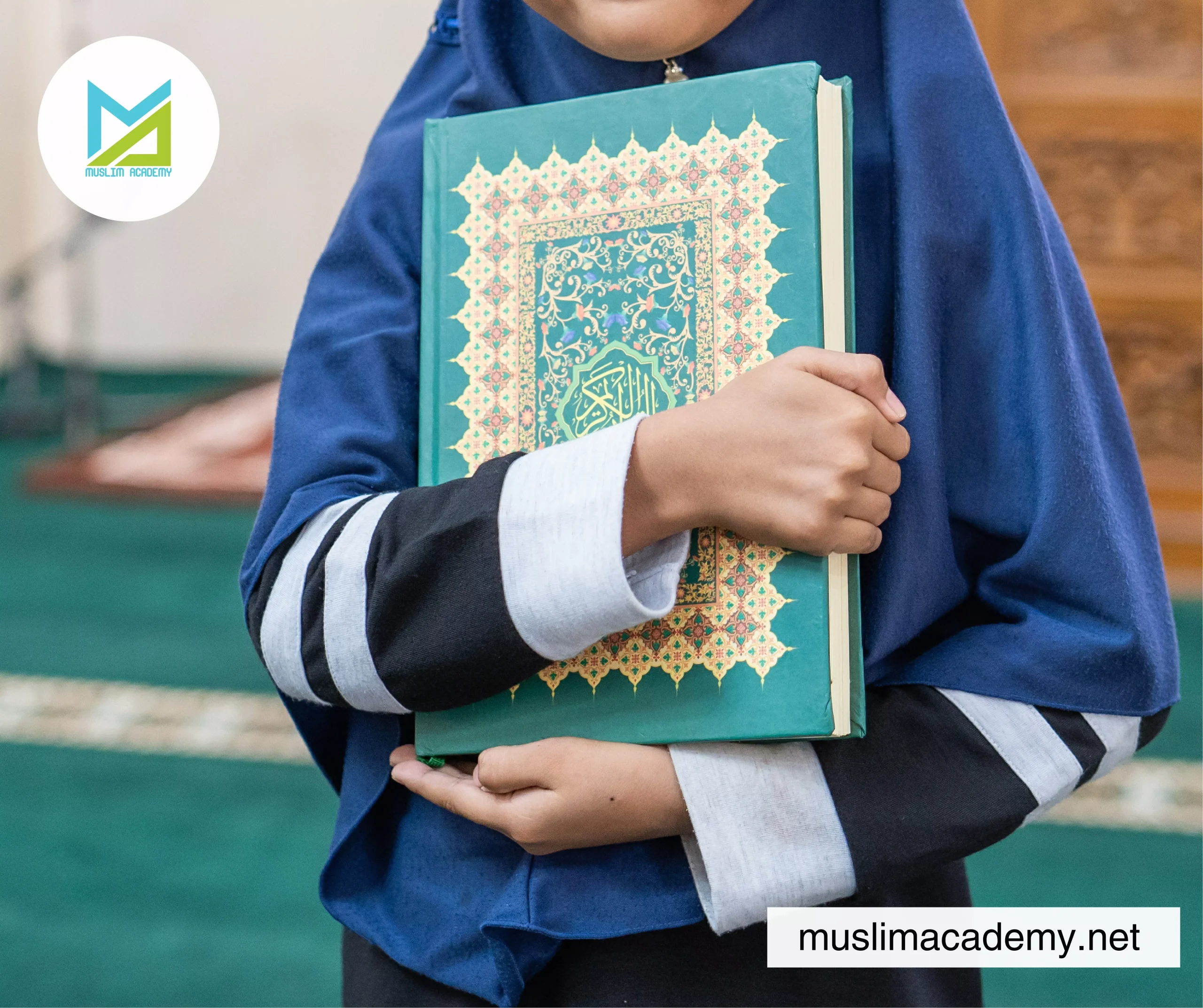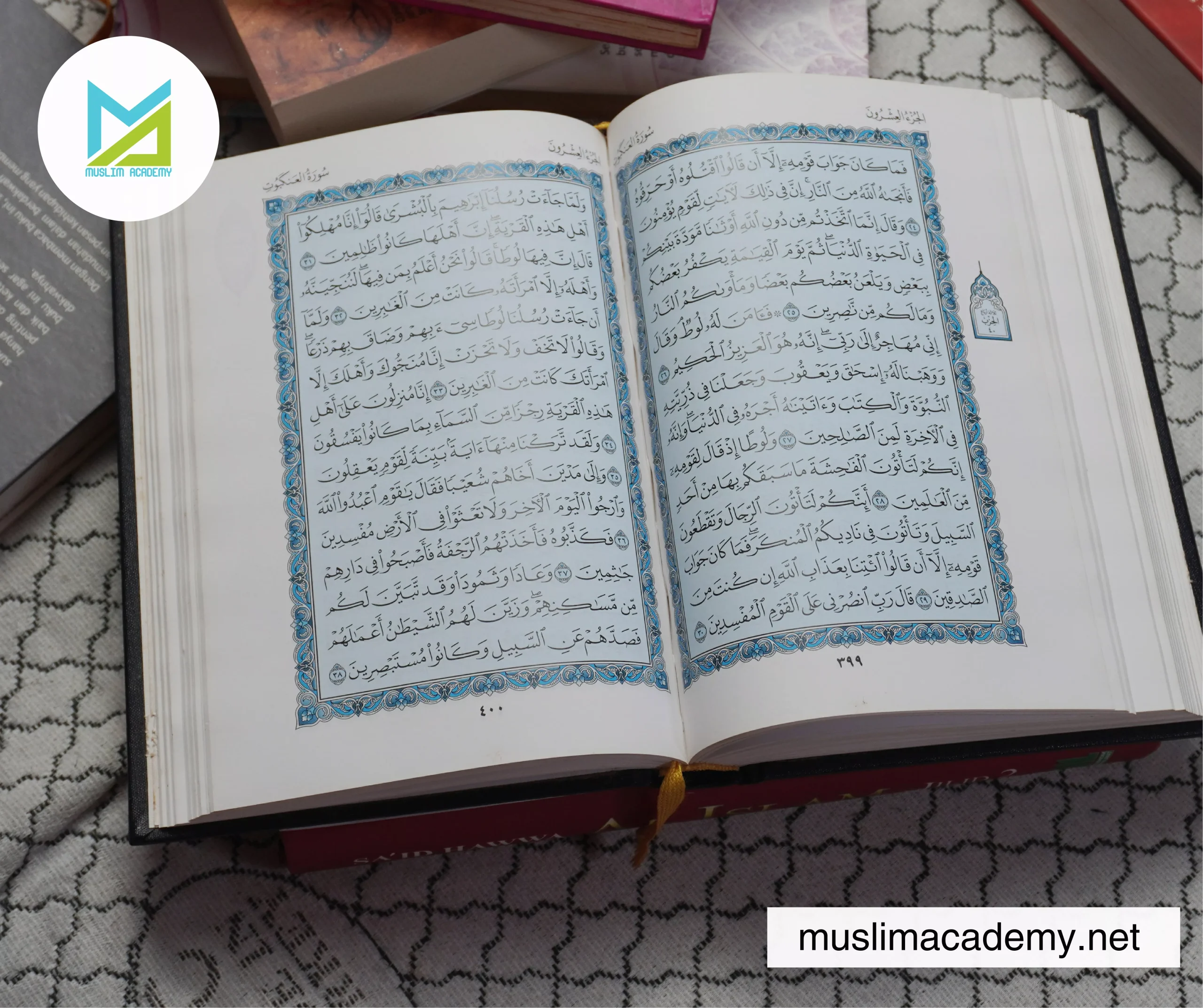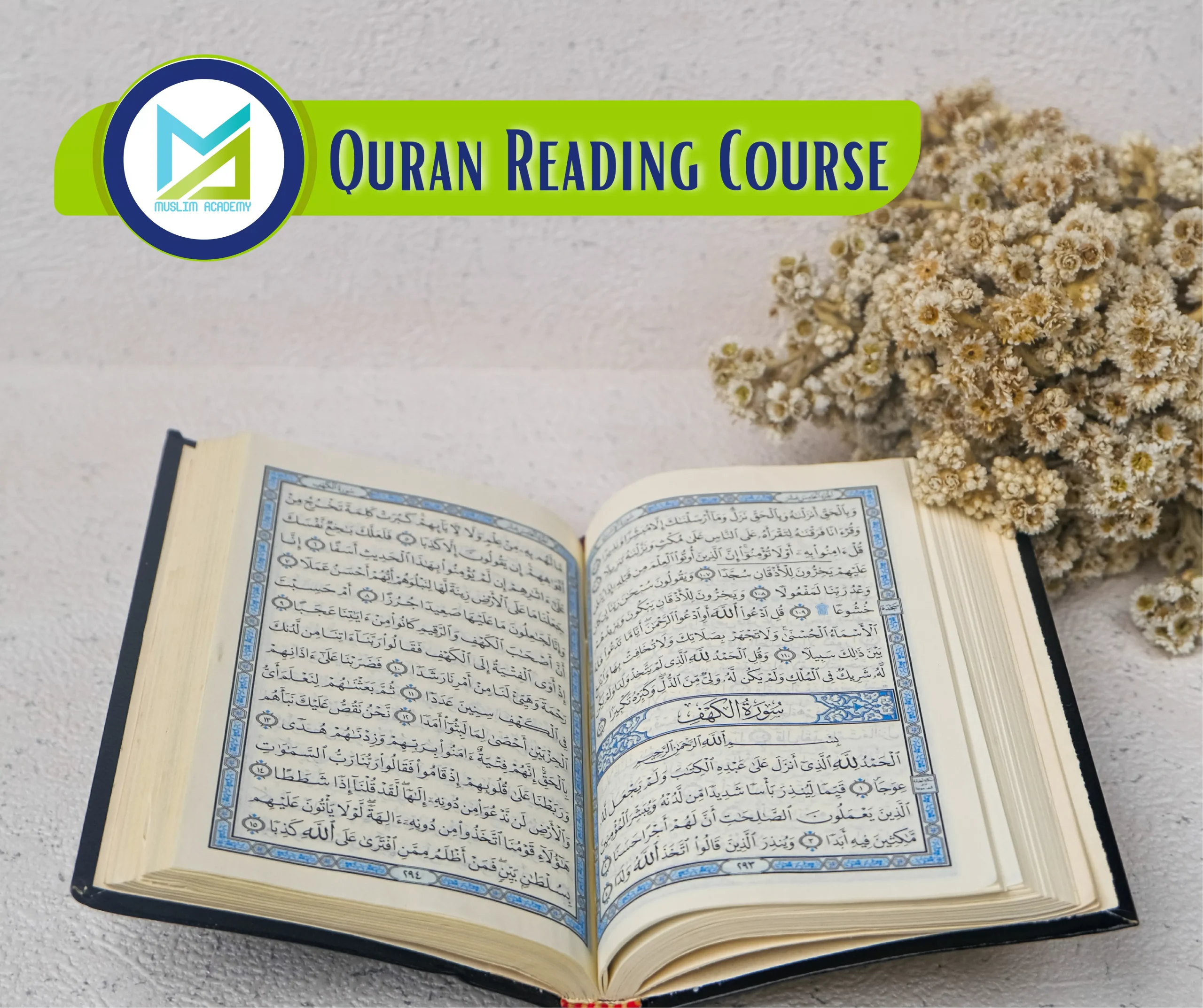Start Online Quran Classes with Muslim Academy
https://muslimacademy.net/index.php/free-trial/
The ability to read the Holy Quran with proper pronunciation, rhythm, and understanding represents one of the most fundamental skills in Islamic education. A specialized Quran Reading Course with Muslim Academy addresses this essential need by providing systematic instruction that transforms students from basic letter recognition to fluent, confident recitation of the sacred text. These comprehensive programs recognize that Quranic literacy extends far beyond simple phonetic reading to encompass proper articulation, rhythmic flow, and spiritual engagement with the divine revelation. Through structured learning progressions and expert guidance, students develop both the technical skills and spiritual awareness necessary for meaningful interaction with Islam’s central text.
The Foundation of Islamic Literacy and Spiritual Connection
Reading the Quran represents the cornerstone of Islamic education and spiritual practice, serving as the gateway through which Muslims access direct communication with divine guidance. A well-structured Quran Reading Course with Muslim Academy acknowledges this profound significance by creating educational experiences that honor both the technical precision required for accurate recitation and the spiritual reverence appropriate for engaging with sacred scripture. This dual focus ensures that students develop not only mechanical reading abilities but also the deeper appreciation and connection that transform routine recitation into meaningful worship and reflection.
The journey of Quranic literacy begins with understanding that the Arabic script represents more than simply another writing system to be mastered. The twenty-eight letters of the Arabic alphabet, when combined according to the rules preserved in the Quranic text, create a linguistic symphony that has remained unchanged for over fourteen centuries. Students entering a comprehensive Quran Reading Course with Muslim Academy discover that they are joining an unbroken chain of learners stretching back to the earliest Muslim community, making their educational journey part of a vast historical and spiritual continuum.
The psychological and emotional aspects of learning to read the Quran cannot be understated. Many students approach their first Quran Reading Course with Muslim Academy with a mixture of excitement and apprehension, eager to access the sacred text independently while uncertain about their ability to master what may appear to be complex linguistic challenges. Effective programs address these concerns by creating supportive environments where mistakes are viewed as natural parts of the learning process rather than failures, and where each small victory is celebrated as meaningful progress toward the larger goal of Quranic fluency.
Systematic Progression and Skill Development
The curriculum structure of an effective Quran Reading Course with Muslim Academy follows carefully designed progressions that build foundational skills systematically before advancing to more complex reading challenges. The initial phase typically focuses on Arabic alphabet mastery, ensuring students can recognize each letter in its various positional forms and understand how letters connect to create words. This foundational skill development is crucial because Arabic script changes appearance depending on letter position within words, requiring students to master multiple forms for each alphabetic character.
Pronunciation instruction within a comprehensive Quran Reading Course with Muslim Academy emphasizes proper articulation of each Arabic sound from its correct point of origin within the mouth and throat. This technical aspect of reading instruction ensures that students develop accurate pronunciation habits from the beginning of their studies, preventing the formation of incorrect patterns that might be difficult to correct later. The course typically includes detailed instruction in the specific characteristics (Sifat) of each letter and the precise locations (Makhaarij) from which sounds should be produced.
Word recognition and connection skills represent the next crucial phase, where students learn to identify common Quranic vocabulary while developing fluency in connecting individual letters to form complete words. This stage often introduces students to frequently occurring terms and phrases that appear throughout the Quran, building recognition vocabulary that accelerates reading progress and comprehension. The transition from letter-by-letter decoding to automatic word recognition marks a significant milestone in student development.
Sentence-level reading and phrase comprehension complete the foundational skill development, enabling students to read complete verses with appropriate rhythm and understanding. This advanced stage of a Quran Reading Course with Muslim Academy typically includes an introduction to basic grammatical concepts that enhance comprehension while maintaining focus on accurate, fluent recitation as the primary learning objective.

Integration of Tajweed Principles and Beautiful Recitation
No comprehensive Quran Reading Course with Muslim Academy would be complete without systematic integration of Tajweed principles that govern the beautiful and accurate recitation of the sacred text. Tajweed rules ensure that the Quran is recited with the same precision and beauty that has been preserved through oral tradition since the time of Prophet Muhammad (peace be upon him). These rules encompass proper pronunciation, rhythm, pause locations, and melodic patterns that enhance both the aesthetic beauty and spiritual impact of Quranic recitation.
The integration of Tajweed instruction within reading courses requires a careful balance between technical rule learning and practical application. Students must understand the theoretical basis for different recitation requirements while developing the muscle memory and auditory skills necessary for consistent, accurate implementation. This balance is achieved through progressive introduction of rules, extensive practice with guided feedback, and gradual increase in recitation complexity as students master foundational concepts.
Breath control and vocal technique instruction help students develop the physical capabilities necessary for sustained, beautiful recitation. This includes guidance on proper breathing patterns, voice projection, and vocal care that enables students to recite for extended periods without strain or fatigue. These physical aspects of recitation training are often overlooked in basic reading instruction but prove essential for students who wish to participate in extended recitation activities or lead prayers within their communities.
Melodic patterns and rhythmic flow instruction introduce students to the traditional recitation styles (Qira’at) that add beauty and emotional depth to Quranic reading. While maintaining accuracy remains the primary focus, students learn to incorporate appropriate melodic elements that enhance the spiritual impact of their recitation while respecting the sacred nature of the text they are reading.
Technology Integration and Modern Learning Methods
Contemporary Quran Reading Course with Muslim Academy programs leverage advanced educational technologies to enhance traditional instruction methods while providing additional practice opportunities and feedback mechanisms. Audio comparison tools allow students to record their recitation and compare it directly with master reciters, providing immediate feedback on pronunciation accuracy and rhythmic flow. These technological aids supplement human instruction while giving students opportunities for independent practice and self-assessment.
Interactive software applications designed specifically for Quranic education provide structured practice exercises, progress tracking, and gamified learning experiences that maintain student engagement while reinforcing essential skills. These applications often include features such as highlighted text that follows audio recitation, pronunciation guides for difficult sounds, and adaptive difficulty adjustment based on student performance and progress.
Video-based instruction enables students to observe proper mouth positioning, tongue placement, and facial expressions that contribute to accurate Arabic pronunciation. This visual component proves particularly valuable for students whose native languages lack certain Arabic sounds, providing clear models for proper articulation technique that might be difficult to convey through audio instruction alone.
Mobile accessibility features allow students to continue their reading practice during commutes, breaks, or other brief periods throughout their day. This flexibility maximizes learning opportunities while accommodating busy schedules that might otherwise limit practice time and skill development progress.

Personalized Learning Approaches and Individual Support
Recognizing that students bring different backgrounds, learning speeds, and challenges to their Quranic education, the quality Quran Reading Course with Muslim Academy programs incorporates personalized learning approaches that adapt to individual needs and circumstances. Diagnostic assessments help identify specific areas where students need additional support, whether in letter recognition, pronunciation challenges, or reading fluency development.
One-on-one instruction components within comprehensive programs provide opportunities for personalized feedback and targeted skill development that might be difficult to address in group settings. These individual sessions allow instructors to focus on specific pronunciation difficulties, provide customized practice materials, and offer encouragement tailored to each student’s personality and learning style.
Flexible pacing options acknowledge that different students will progress at different rates depending on their prior experience, available practice time, and individual learning capabilities. Rather than forcing all students through identical timeframes, effective programs allow learners to advance when they have genuinely mastered prerequisite skills and are ready for new challenges.
Cultural and linguistic adaptation recognizes that students from different language backgrounds may face particular challenges in Arabic pronunciation or script recognition. Specialized instruction techniques that address these specific challenges help ensure that all students can succeed regardless of their linguistic starting point or cultural background.
Assessment Methods and Progress Tracking
Comprehensive assessment strategies within a Quran Reading Course with Muslim Academy provide multiple methods for evaluating student progress while identifying areas that need additional attention or support. Regular recitation assessments allow instructors to evaluate pronunciation accuracy, reading fluency, and Tajweed application in authentic reading contexts. These assessments typically combine formal evaluation with informal ongoing observation that provides continuous feedback throughout the learning process.
Portfolio development enables students to maintain records of their progress, including recorded recitations, written exercises, and reflection journals that document their learning journey. These portfolios provide tangible evidence of improvement over time while encouraging self-reflection about achievements and areas for continued development.
Peer assessment activities, when carefully structured and supervised, provide valuable learning opportunities where students help each other identify strengths and areas for improvement. These collaborative assessment experiences build community while developing critical listening skills that enhance students’ ability to self-monitor and self-correct their own recitation.
Goal-setting and milestone recognition help maintain student motivation while providing clear targets for achievement. Regular celebration of progress, whether completing particular chapters, mastering specific Tajweed rules, or achieving reading speed benchmarks, creates positive associations with Islamic learning while acknowledging the significant effort required for Quranic literacy development.
Community Integration and Practical Application
Effective Quran Reading Course with Muslim Academy programs recognizes that reading skills developed in educational settings must transfer successfully to real-world Islamic practice and community participation. Integration with prayer instruction helps students understand how their reading skills apply to daily worship, enabling them to participate more fully in congregational prayers and individual devotional practices.
Community reading opportunities, such as group recitation sessions or participation in Islamic celebrations, provide authentic contexts where students can apply their developing skills while building confidence in public recitation. These community integration experiences help students see the practical value of their educational investment while building connections with broader Muslim communities.
Family involvement components recognize that Quranic reading skills often benefit entire households, particularly when parents and children learn together or when adult learners share their knowledge with family members. Resources and guidance for home practice help extend learning beyond formal class time while creating supportive family environments for continued Islamic education.
Leadership preparation components within the advanced Quran Reading Course with Muslim Academy levels prepare students for potential roles as prayer leaders, community educators, or Islamic studies instructors. This forward-looking approach helps students see their reading education as preparation for broader community service and leadership responsibilities.
Long-term Benefits and Spiritual Development
The impact of completing a comprehensive Quran Reading Course with Muslim Academy extends far beyond immediate technical skill acquisition to encompass spiritual growth, cultural connection, and preparation for lifelong Islamic learning. Students who develop confident Quranic reading abilities often report increased engagement with Islamic worship, deeper appreciation for their religious heritage, and stronger motivation for continued religious education.
Independent reading capability enables students to engage directly with primary Islamic sources rather than relying exclusively on translations or secondary interpretations. This independence fosters critical thinking skills while building confidence in personal spiritual development and religious understanding.
Cultural preservation benefits arise as students who can read Arabic script gain access to broader Islamic literary traditions, historical documents, and scholarly works that might otherwise remain inaccessible. This cultural literacy helps maintain connections with Islamic heritage while building appreciation for the rich intellectual traditions within Muslim civilization.
Intergenerational knowledge transmission becomes possible as students develop the skills necessary to teach reading to family members, particularly children who benefit from parental guidance and support in their Islamic education journeys.
Conclusion
A well-designed Quran Reading Course with Muslim Academy provides far more than simple literacy instruction; it offers a comprehensive educational experience that combines technical skill development with spiritual growth and cultural connection. These programs successfully bridge traditional Islamic educational methods with contemporary pedagogical innovation, creating accessible pathways for students to develop the reading competency that serves as the foundation for all further Islamic learning.
The long-term impact of quality reading instruction extends throughout students’ lives, enabling ongoing engagement with Islamic sources, confident participation in community religious activities, and the ability to share this essential skill with future generations. Through systematic instruction, personalized support, and integration with broader Islamic education goals, the Quran Reading Course with Muslim Academy programs establishes strong foundations that support continued spiritual and intellectual development throughout students’ lives.
As these educational programs continue to evolve and expand their reach, they will remain essential components of Islamic educational infrastructure, ensuring that Muslims worldwide can access the fundamental literacy skills necessary for meaningful engagement with their sacred text and continued growth in their faith journey.
